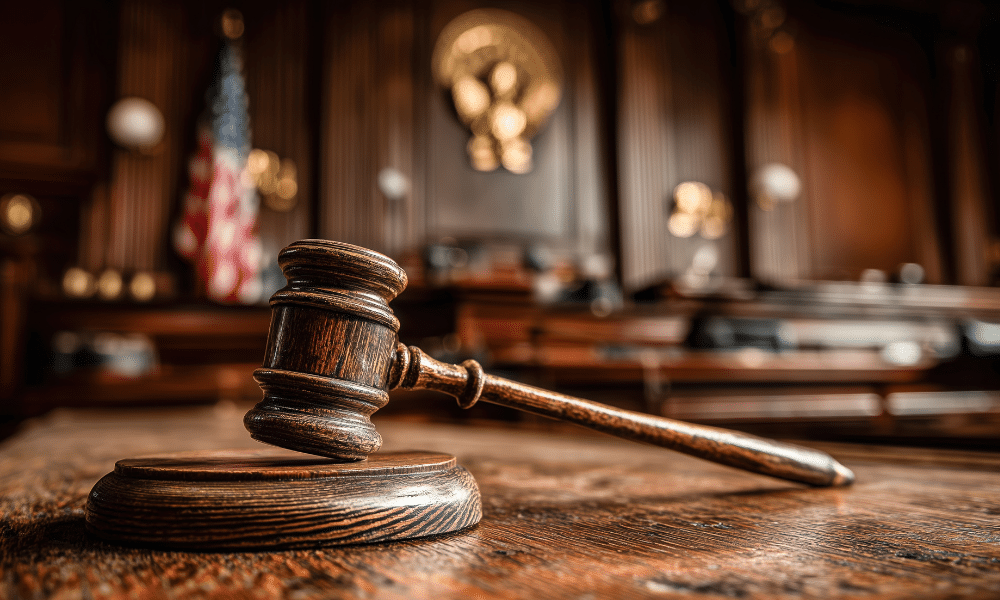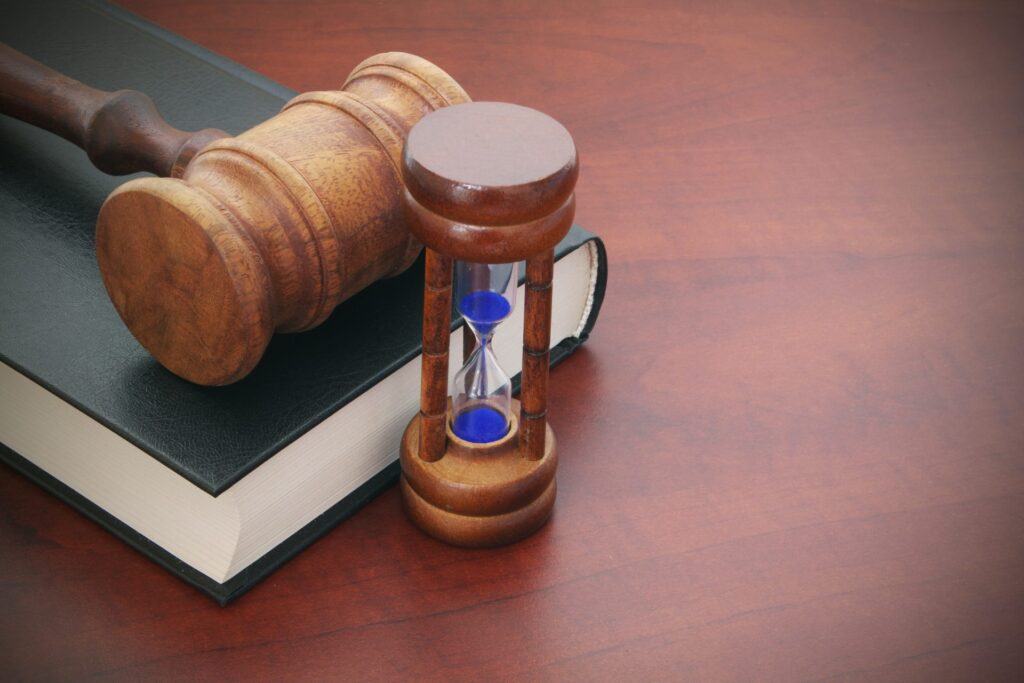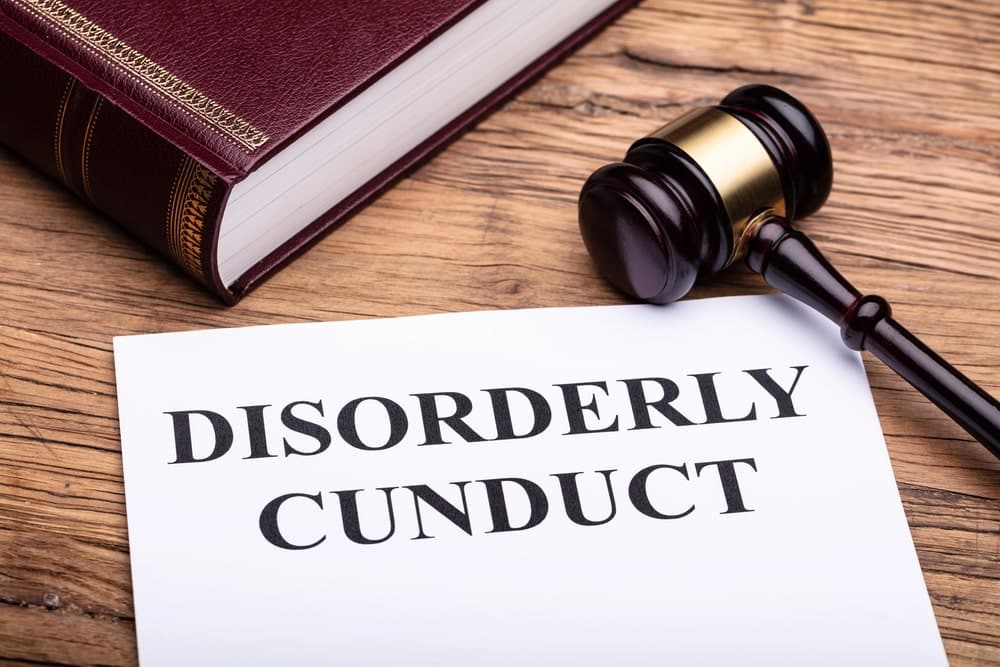If you are charged with a crime in Maine, going to trial is just one of the possible outcomes. In fact, around 90 percent of criminal cases in Maine are resolved with a plea deal, meaning that no trial is necessary. This saves precious court time and expenses, as well as a great deal of stress for the accused.
If your case does proceed to trial, it helps to know what to expect from the process. If you are charged with a crime, it also helps to understand what you can do to prevent the worst consequences of a conviction.
Both of these matters are addressed below.
Call 207-571-8146 or contact us online to schedule a consult with one of our highly skilled criminal defense & OUI, DUI, DWI lawyers, serving Maine, today.
Table of Contents
Stages of the criminal process in Maine
Following a criminal investigation, arrest, and charge, the defendant must appear in court for the first time no later than 48 hours after arrest.
At an initial hearing for a misdemeanor (Class D or E) crime, which may be in person or via video, the judge will read the charges, provide a statement of rights, and you will enter a plea. With legal representation, your lawyer may even be able to send a letter to the court clerk entering a “not guilty” plea on your behalf and no appearance will be required.
In more serious cases (felonies), no charges will be read and no plea will be entered, but the court or a bail commissioner will decide the following:
- Set bail, or
- Detain the defendant until a further hearing
Depending on the nature of the crime, from this point until the trial, there may be a series of hearings as both sides prepare their cases. During this period, there may also be opportunities for the prosecution and defense attorneys to discuss plea negotiation, to prevent the case from going to trial.
What happens when a criminal case goes to trial in Maine?
Criminal trials in Maine proceed according to the Maine Rules of Unified Criminal Procedure. There are generally four stages to trials:
- The prosecution and defense make opening statements, a non-adversarial stage where each side presents its version of the case to the jury. This will include comments on the key evidence the jury should consider when making their decision.
- The longest stage of criminal trials is where the attorneys present documentary evidence and other supporting materials and cross-examine witnesses who “take the stand” to give oral evidence. The prosecutor will aim to establish the guilt of the defendant beyond a reasonable doubt and the defense counsel will attempt to expose inconsistencies or weaknesses in the prosecutor’s arguments to introduce “reasonable doubt”.
- The attorneys close their arguments to the jury in closing statements that summarize the most important and favorable points that support their cases.
- The judge instructs the jury on the law regarding the case and explicitly indicates what is expected during deliberation. The jury must decide the guilt or innocence of the accused based solely on the evidence provided.
Securing legal representation in Maine
The most essential step of the Maine criminal process for defendants—whether or not your case ends up at a trial—is to secure experienced legal representation.
As soon as possible after being accused of a crime, contact a criminal defense lawyer and exercise your right to remain silent. Do not try to prove your innocence to police officers, as anything you say can be used against you in court. Simply ask for a lawyer, as is your right.
If you have received a summons or been arrested, the police believe they have “probable cause” to charge you with a crime and the prosecutor at the DA’s office is likely to agree. The only place to fight your case is in court and anything you say before then may implicate you or weaken your case.
A criminal defense attorney will offer support, protect your rights, and help you navigate the Maine criminal justice system with more clarity. Without legal representation, your chances of avoiding a criminal conviction and lifelong consequences are greatly diminished.
Call 207-571-8146 or contact us online to schedule a consult with one of our highly skilled criminal defense & OUI, DUI, DWI lawyers, serving Maine, today.
What happens if you’re charged with a misdemeanor crime in Maine?
Misdemeanors, such as operating under the influence (OUI) and shoplifting, are handled differently from felonies like aggravated assault and burglary in Maine.
For misdemeanors, the defendant may enter a plea of guilty, not guilty, or no contest at the arraignment after consulting legal counsel.
If you plead guilty at the arraignment, you will be sentenced at that time. However, pleading not guilty, as is advisable, will mean that a future disposition (pretrial) conference is scheduled—often in 1–3 months. This conference, at which you will need to appear, should be considered an opportunity for your lawyer and the prosecutor to discuss a resolution of your case without going to trial.
What happens if you’re charged with a felony in Maine?
At the initial appearance for a felony charge (Class A, B, or C crime), no plea is entered by the defendant. Defendants must appear in person to hear the charges, confirm that they understand their Constitutional rights, and may apply for bail.
The clerk will provide a future date to return to court for an arraignment, following indictment from a grand jury (a group of citizens who listen to the testimony of witnesses and decide whether or not probable cause exists to charge you with a felony).
The indictment is the formal charging document, after which the defendant must return to court to hear the charges and enter a plea at the arraignment.
When will my Miranda rights be read to me by police in Maine?
Miranda rights are a verbal list of rights that law enforcement officers must read to detainees in certain circumstances when they are being investigated for a crime.
These rights include the right to remain silent, the understanding that anything said can be used against them in court, the right to consult with an attorney before and during questioning, and the right to have an attorney appointed if they cannot afford one.
For an individual to qualify for Miranda rights to be read, he/she must be held in custody AND be subject to interrogation. In many cases, it is not clear whether either of these conditions apply and mistakes are made on both sides.
Investigating officers often reassure suspects that they are free to leave at any time, hinting that they are not in custody so that Miranda rights do not come into play.
Should I speak to a police officer if I am under investigation for a crime in Maine?
As a general rule, remaining silent until you have spoken to a criminal defense lawyer is a wise move at almost any stage of a criminal investigation, whether or not your Miranda rights have been read to you.
The police have a job to do, and that job does not include protecting your interests or rights. They want to gather evidence to charge and convict you or obtain a confession. Other than identifying yourself, which is a legal obligation if you are suspected of criminal activity, you generally do not have to say much at all to law enforcement until you speak with a criminal defense lawyer.
Politely refuse to answer questions and request the opportunity to speak with an attorney before discussing anything with law enforcement.
For experienced legal help with any criminal charge, call the Maine Criminal Defense Group at 207-571-8146 for an initial case evaluation.
Call 207-571-8146 or contact us online to schedule a consult with one of our highly skilled criminal defense & OUI, DUI, DWI lawyers, serving Maine, today.
Related Articles

Defendants in criminal cases typically have four options for resolving their case if the charges are not dismissed: Plea negotiation, where the defendant agrees to plead guilty (or no contest)[...]

Many people are unaware that it is a criminal offense in Maine to make a false report of an emergency that causes public alarm. Even those who are aware of[...]

A criminal conviction usually appears on criminal records for life in Maine, potentially impacting the individual’s employment, education, travel, housing, immigration status, and more. However, certain low-level misdemeanor convictions can[...]

The legal term for sentencing a convicted criminal is not required to serve is called a suspended sentence. A suspended sentence is handed down during the sentencing portion following a[...]

If you receive a traffic ticket in Maine, you may be facing far more than demerit points or an administrative penalty. You could be facing criminal sanctions and a permanent[...]

In Maine, disorderly conduct laws effectively make disturbing the peace a criminal offense. While disorderly conduct is considered one of the least serious offenses under Maine’s Criminal Statutes, it can[...]

Any criminal charge for a drug-related offense is a serious matter in Maine,but how consequential the outcomes can get may depend on whether the charge is filed at the state[...]


Self-defense laws in the U.S. are complex, vary from state to state, and are often misunderstood. “Stand your ground” laws allow an individual to use deadly force in self-defense in[...]

Every day in Maine, people are charged with crimes that they did and did not do. Fortunately, in the U.S., we have a justice system that says you’re innocent until[...]
